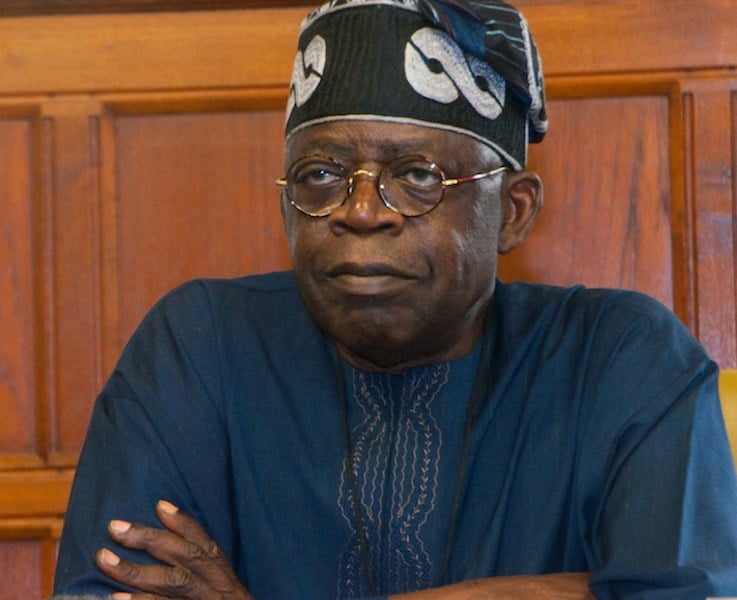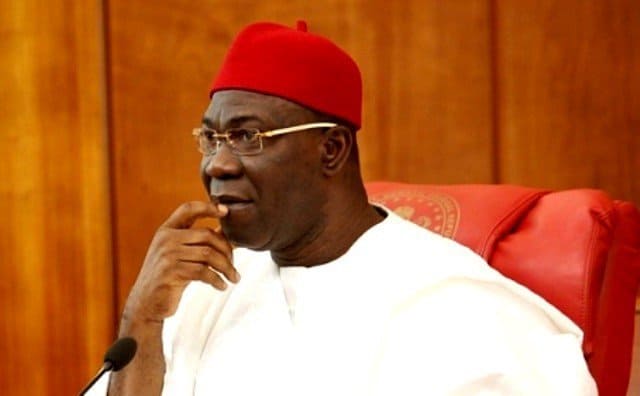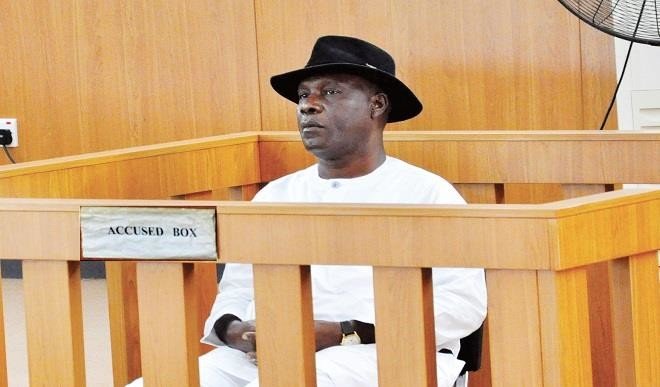With the recent judgement of the Code of Conduct Tribunal on Justice Walter Onnoghen has opened a new wave of direction to the fight against Corruption.
Naija News recalls that history was made when Walter Onnoghen, embattled chief justice of Nigeria (CJN), entered the dock at the Code of Conduct Tribunal (CCT). He was charged with false assets declaration exactly two years after the CCT discharged and acquitted Saraki of similar charges.
In the heat of the trial, Onnoghen turned in his resignation but that did not save him from the hammer of the tribunal. On Thursday, Danladi Umar, CCT chairman, found him guilty of the six counts preferred against him by the federal government.
The tribunal chairman ordered that he be removed from the office and also prevented from holding public office for 10 years. He also ordered that the money in the five bank accounts of Onnoghen that he did not declare be confiscated.
In this piece, we look at how some prominent Nigerians fared when they walked this path.
BOLA TINUBU
EX-GOVERNORS & CORRUPTION:
Suit n: CCT/ABJ/01/11
Gov: Bola Tinubu (ex gov Lagos State)
Ct: Code of Conduct Tribunal
Charges: Alleged breach of code of conduct
Case filed 2011
Status: Case struck out on technical grounds. No fresh case has been filed.— SERAP (@SERAPNigeria) June 9, 2018
Bola Tinubu, ex-governor of Lagos was arraigned before the CCT in November 2011 for allegedly operating foreign bank accounts, contrary to the constitution. Tinubu was accused of operating 10 foreign accounts during his tenure as governor between 1999 and 2007 in the charges filed against him by CCB at the tribunal.
However, the three-man panel of the tribunal dismissed the case at the second appearance of the former governor at the court.
It held that “there is no significant basis to proceed against Tinubu as the charges were “defective and shoddy.”

Bola Tinubu
The tribunal held that the charges did not disclose a prima facie case against the accused person as there was no proof of evidence attached to the charge. Umar said the charges against Tinubu did not show that the accounts were held by the accused persons.
“Some (of the foreign accounts) even bear female names…how can the accused be made to answer such charges?” he said.
IKE EKWEREMADU
@Gidi_Traffic Deputy Senate president, Ike Ekweremadu may be facing the Code of Conduct tribunal next week over false declaration of assets. Ekweremadu will be charged before the Code of Conduct Tribunal (CCT) by the office of the attorney-general of the Federation (AGF).
— AustynZOGS (@Austynzogs) March 9, 2018
In March 2018, Festus Keyamo, a senior advocate of Nigeria (SAN), filed a suit on behalf of the federal government seeking the temporary forfeiture of alleged undeclared assets traced to Ike Ekweremadu, deputy senate president
Twenty-two properties were reportedly traced to the deputy senate president, nine in Nigeria, two in the UK, eight in Dubai and three are in the US.
Following the purported discovery, Abubakar Malami, attorney general of the federation (AGF), had filed a false declaration of assets charge against Ekweremadu before the CCT.Ekweremadu was said to have failed to disclose the foreign assets in his declarations to the CCB.

In October 2018, the federal government filed charges against Ekweremadu and Bassey Akpan, senator representing Akwa Ibom north-east district, for alleged failure to declare their assets. He was billed to be arraigned before the CCT in March 2018 but that never saw the light of the day. The deputy senate president denied all the allegations, saying he has no case to answer.
GODSDAY ORUBEBE
FG withdraws N70million bribery charge leveled against ex Minister of Niger Delta Affairs, Godsday Orubebe, before Code of Conduct Tribunal.
— ESTHER OYEGUE (@estheroyegue) March 8, 2016
Godsday Orubebe, former minister of Niger Delta affairs, was slammed with a one-count charge of false declaration of asset by the federal government in 2016.
He was accused of failing to declare a property known as plot 2057, Asokoro, Abuja, while he was a public officer. Orubebe had told the tribunal that the property was no longer his as of the time he went into public service. He said he had sold the property to his creditor; hence he saw no need to declare what was not his.

But the tribunal convicted him on the premise that the title deeds of the property still bore his name.
Umar found him guilty of the charge and ordered a seizure of the property.
However, an appeal court overturned the judgment of the CCT in 2017, ruling that it was clear that Orubebe sold the property even if the title deeds still had his name on them. Orubebe came into limelight when he tried to disrupt the collation of the 2015 presidential election results in Abuja.
BUKOLA SARAKI
Supreme Court Cleared Senator Saraki of All Charges: We hail the Supreme Court of Nigeria for dismissing the asset declaration case against @SPNigeria @bukolasaraki at the Code of Conduct Tribunal (CCT). It's a triumph of justice, pic.twitter.com/vF1NFCTwDV
— Official PDP Nigeria (@OfficialPDPNig) July 6, 2018
In September 2015, the Code of Conduct Bureau (CCB) filed an 18-count charge of false asset declaration against Saraki at the CCT. The trial, which commenced in March 2016, lasted 1,018 days before he was let off the hook.
In June 2018, the CCT dismissed the charges against Saraki on the grounds that the prosecution, with its four witnesses and 49 exhibits tendered, only led to hearsay evidence.

However, the federal government filed an appeal and a month later, the supreme court ruled that Saraki had no case to answer at the CCT.
source https://www.naijanews.com/2019/04/19/flash-back-remembering-the-cct-cases-of-four-prominent-politicians-in-nigeria/





![[Video] DNA – Sinnerman](https://blogger.googleusercontent.com/img/b/R29vZ2xl/AVvXsEj2PJZq-kfMduOIFu3JD8wNpnp6TteANpBcgqq0D7hLg7sIteZaq5ubHLkPS0mdHE07kKjR1U8WAR3Aph_aK5urhsfFZj5z9ssLxGHUZ6BlP-vdMzUkXLfVvSkKlTv0kbIHRrj3DkxjZNbY/s72-c/DNA-SinnerMan.jpg)
![[Music + Video] Flavour Ft. Umu Obiligbo – Awele](https://blogger.googleusercontent.com/img/b/R29vZ2xl/AVvXsEh1Oychjj2lPSrUOwBedUVCBBsQj3wDLwk-AXRVEri98rF2_9bs6gFVRfuxL8ivZt5ZUFDSVfiGQ9EpIcB5_X2r5oHLofRtxSXDaf19oiLWISI3gK7zIU_IwqSN_mVVC66TmKPakJ7wur9w/s72-c/rsz_awele.jpg)
![[VIDEO] Davido - Wonder Woman](https://blogger.googleusercontent.com/img/b/R29vZ2xl/AVvXsEixFAzRKdpsi4tKkGHA3S5T_-WrKdyKC0C6l7Aj-DOltg7QRZPf6ln1y5QEqUcm1-BMvgCDwIQ1U2MbuF9gNsmMVToGGF4CaISmVqiAdk0gAVCl_FckjbI3jQEYCYlrHE64sgNXZnzhEnmE/s72-c/images+%25282%2529.jpg)
![[Video] Ketchup – Issa Flirt](https://blogger.googleusercontent.com/img/b/R29vZ2xl/AVvXsEhRaXBoisH3fcfynzua-za2O3bw37SzNaJJdurai2VYi1WMkYeiDz88bPq3puahsv_VxKudLJ2WOJY1tazPjek_5VmQpG_LyGpqw6R42XDaCvMkK_nRVVK-sBvLsnOqU3J_4YNrEWEvoIDz/s72-c/download+%252813%2529.jpg)

![[AUDIO] Olamide, Falz & Timaya – Live Life](https://blogger.googleusercontent.com/img/b/R29vZ2xl/AVvXsEi-018zXR570B1QIsnr6v-ueWzfXS6u7oLfgbG5ezRBPyeKlETE9AxyX4zHqmzaYy_uAg_B7o0Jlu9Yybti4cuFDHg-BB0GJLxdDYSH5XAbF7A1HnvxyU13_ia9RKhI99a67GINaApYmPIE/w100/Live-Life_02.jpg)
![[AUDIO] Download Xrock – Egwu](https://blogger.googleusercontent.com/img/b/R29vZ2xl/AVvXsEgMOJXZx4CozWtpQqdWbM9zGipHiQl4s18xghlhJKisvilqnkGmY90SWNKCh_CDijjrPnwNLc65rpYG9jMY7CEG0csdObVanddRVMcnJlcsiaQlkluZFmOfDlShJvChqCVJSJcGknJgAwfI/w100/Xrock-Egwu-1024x1024.jpg)
![[AUDIO] Phyno – Iyilu Ife](https://blogger.googleusercontent.com/img/b/R29vZ2xl/AVvXsEjdzAmjfbFJH4mgDFNUzbwXf-j_KOY0osg9BZrVqgU7csftOoAewCvkoHh7nIc4Vp03xq-GJaJ4IwwvEleAqe5nDgTV2sLEDMIMWnMH9kbKnzkowIYfkfb4DhwC6sACXhwFRUVFvPH0HCZz/w100/Phyno-Iyilu-Ife-mp3-image.jpg)
![[AUDIO] Phyno – OIL](https://blogger.googleusercontent.com/img/b/R29vZ2xl/AVvXsEgFh5eU4D3CCuTdHmh5JbRJ143qALEnI9pQ3Y9oFG9VT-mTq8KEQsh0VCep1iIdnBM_4mk0LylhOg5yuXLpS-pBFXXBYDZAlgSsDSn9SiSnm3SQo6-QY9coDXlL5CS_i879-t8vYBNmV871/w100/Phyno-OIL-Official-Audio-mp3-image.jpg)
0 Comments